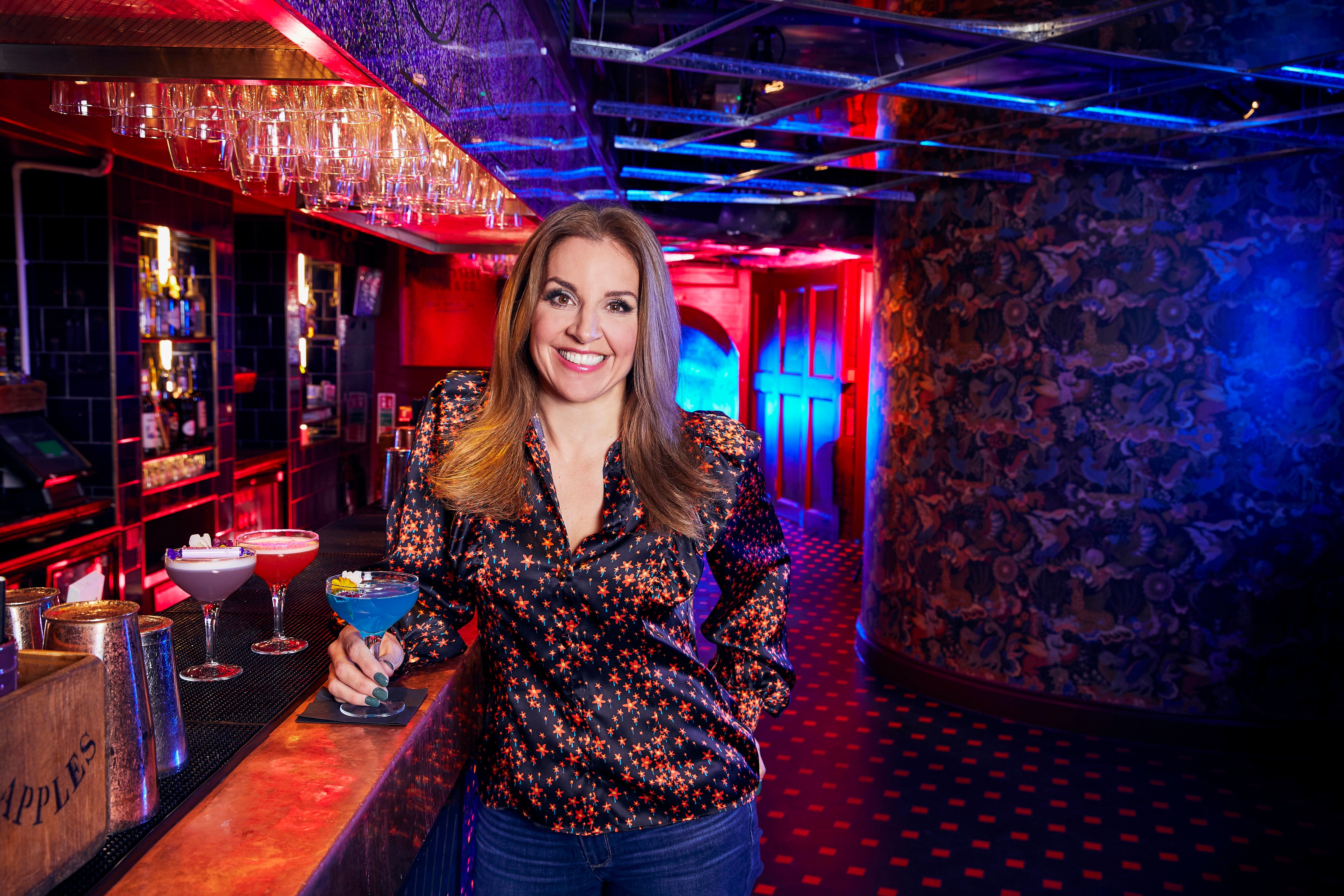Dragons’ Den’s Sarah Willingham recalls ‘instantly knowing’ she’d been spiked
The CEO and mother-of-four, 49, said more action needs to be taken to help ‘everybody feel safe’ on a night out

A former Dragons’ Den investor and serial entrepreneur who believes her drink was spiked in her 20s, causing her to “bounce off the walls” as she staggered back to her hotel room with a friend, confused and barely conscious, has launched a new safety campaign.
CEO and mother-of-four Sarah Willingham, 49, who lives in Sussex, was on holiday in Tenerife with a friend when the alleged spiking incident – where someone puts alcohol or drugs into another person’s drink or their body without their knowledge or consent – took place.
The pair ordered a vodka and orange juice – their first alcoholic beverage – and after finishing that one drink, they both stood at the bar thinking “something doesn’t feel right”.
They knew “instantly” that they needed to leave and “grabbed each other”, stumbling back to their hotel room, but they do not remember entering their room or how they got back.
Sarah did not tell anyone at the time and has kept the details private for nearly three decades – but now, following new research commissioned by her company Nightcap PLC, which has 36 bars and restaurants across England, she has decided to speak out.
The research, conducted by Censuswide with 2,022 18 to 30-year-olds, has revealed more than half of those (53%) surveyed said they had felt unsafe or uncomfortable on a night out.
Sarah said these statistics are “so disappointing”, and she feels more action needs to be taken to help “everybody feel safe” on a night out.
“It makes me very focused and aware that people are coming into our bars and they’re having a great time, and they’re leaving, on a number of occasions, really intoxicated,” she said.
“I want to make sure that we’ve done all that we can, so people just have a great night out, relax with their friends, let go, and have a really good time – that’s what we’re there for.
“During that evening, we’ve got their back, but when they leave, their mates have got their back.”
Sarah said spiking is “everyone’s worst nightmare”, and being a mother to four young children – Minnie, 16, Monti, 15, Nelly, 13, and Marly, 12 – further reinforces her drive and passion for the new ‘Nightcap Safer Together’ campaign, which focuses on customer safety and security.
She added: “Let’s not stop partying, let’s not stop doing it… but let’s put some safety checks in place and do everything we can to make it as safe as possible.”
Sarah appeared on two seasons of popular TV show Dragons’ Den between 2015 and 2017, and has extensive experience within the hospitality industry.
She said it is the “best industry in the world”, and she launched her award-winning company Nightcap alongside her husband, fellow entrepreneur Michael Toxvaerd, 48, in January 2021.
However, when she was in her 20s, she believes she and her friend were spiked while holidaying in Tenerife.
After just one drink, the pair “could feel something happening through their body really quickly”.
“I can hardly remember getting back to the room,” Sarah said.
“I remember bouncing off the walls of the corridor, but I don’t remember us entering the room.
“I woke up on the floor in the morning, having lost complete control of every part of my body, pretty much, during the course of the night.
“My friend woke up with her head on the bath, in the bathroom, in exactly the same state.
“There was sick everywhere; we were an absolute mess, and therefore we have to have been spiked.”
This was nearly three decades ago and, at the time, Sarah said the pair felt “sheepish” and “didn’t say anything” afterwards – but looking back now, she realises they were “lucky”.
She said spiking was not openly discussed at the time, but she is thankful she was not alone as there are so many “what if” questions that she still asks herself to this day.
“What if we’d have been somewhere else and not in a hotel?” Sarah said.
“What if we’d have not been together? What if we’d have been on our fourth or fifth drink?
“I don’t know what the outcome would have been if we’d have not gone through that together.
“We literally grabbed each other and dragged each other back to the room, but if I’d have been on my own or with somebody else who didn’t have that same conviction to get back, what would have happened?
“We were the lucky ones.”
Spiking is illegal under current laws, but earlier this year, the Government said it will not create a specific offence for spiking, arguing a new law is unnecessary, the BBC reports.
According to Nightcap’s research, 43% said they had been intentionally or unintentionally left on their own in a bar or club, and one quarter said they did not believe they would be able to tell the difference between someone who was drunk and someone who had been spiked.
While Sarah has “always been vigilant” while drinking alcohol, she said hearing others’ stories and Nightcap’s research have reinforced her belief that more needs to be done to keep people safe.
As part of the new campaign, Nightcap, which has an approximate £60 million run rate, is also launching a charter which includes a pledge to provide extensive training to staff.
Sarah wants to raise more awareness of spiking and intoxication, and to stress the importance of having “each other’s backs” on a night out, as she said: “We are safer together.”
“I really want this to become embedded in the culture, across all of the bars,” Sarah said.
“We just have to keep making sure that this just becomes a really big part of who we are.”
The new training will focus on empowering staff to make sure everyone feels safe in Nightcap venues and include specific training on vulnerability awareness, dispersal protocols, and how to support victims of intoxication, violence, aggression, drugs and spiking if these incidents occur.
Sarah also hopes the campaign will have a positive impact on her children when they start going out when they are older.
She added: “I feel that campaigns like this will become so ingrained in the culture of Nightcap.
“If we change the path of one person’s night then it has all been worth it.
“I know that just sitting around at home and talking to my children about the importance of looking after each other will make them and their friends think differently when they go out.
“I’m really proud of what we’re doing here.”
For more information, visit www.nightcapplc.com.



Bookmark popover
Removed from bookmarks